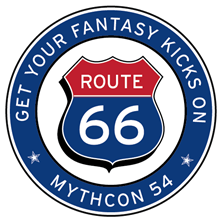Loading...
Document Type
Paper
Event Website
http://www.mythsoc.org/mythcon/mythcon-51.htm
Start Date
1-8-2021 10:00 AM
End Date
1-8-2021 10:45 AM
Description
In his seminal 1939 Andrew Lang lecture “On Fairy-Stories,” Tolkien proposed what we might term his most extensive pronouncement on his own fiction and underlying poetics, as well as an analysis of Fairy-Stories constituting a referential and authoritative statement on the matter. The importance of the subsequently published text, chiefly cited from Christopher Tolkien's posthumous edited version in The Monsters and the Critics, or, more recently, in Douglas A. Anderson's and Verlyn Flieger's critical edition, simply cannot be overstated.
In the light of such awareness, I would like to examine Tolkien's antecedents as far as his chief arguments are concerned, beginning with fellow Pembroke College Professor Robert George Collingwood's philosophy as published in 2004 from the manuscript of his 1936 Folk Lore Society lectures, by the title The Philosophy of Enchantment, which was paraphrased in titling the present account. In fact, Collingwood therein touched on many of the subjects treated in Tolkien's lecture, also agreeing with him in many respects, therefore an evaluation should be given as to how the two thinkers' minds stand in comparison to each other, especially regarding, for example, their common references concerning the study of the origins of Fairy-Stories, their shared critique of the exclusive association of aforesaid tales with children, as well as their concepts of Magic and Enchantment, and their negative views on modern technology. Subsequently, I would like to focus on the key terms of Tolkien's theory of Subcreation by pointing out how all four—Fantasy, Escape, Recovery, and Consolation—powerfully resound with theological significance, and even more strikingly so in the case of the latter couple. Fantasy in its technical theological meaning was compared to God's light bestowing understanding to human minds in Reginald Pecock's 15th century theological treatise titled The Book of Faith. Pecock's The Rule of Christian Religion is also an example of the conception of Christian Salvation as Escape from damnation. In another work, titled Patience, of the anonymous 14th century of Sir Gawain and the Green Knight, which Tolkien edited, line 394 reads: “Alle cryed for care to þe Kyng of heven, Recoverer of þe Creator þay cryed uch one”. Finally, the Consolator par excellence, according to the New Testament, is the Holy Spirit, whom is sent by God to the Apostles after Christ's ascension to Heaven. It is interesting to point this out, also in the light of another known fact hardly pointed out in this respect, although probably relevant: despite the awareness that Tolkien may have been influenced by 6th century thinker Boethius, especially in his Old English translation, seemingly it has always escaped the critic's eye the fact that his referential work so translated is titled: The Consolation of Philosophy.
Tech Mod: Jessica Dickinson Goodman.
Creative Commons License

This work is licensed under a Creative Commons Attribution-NonCommercial-No Derivative Works 4.0 International License.
Included in
The Philosophy and Theology of Fairy-Stories: Fantasy, Escape, Recovery, and Consolation
In his seminal 1939 Andrew Lang lecture “On Fairy-Stories,” Tolkien proposed what we might term his most extensive pronouncement on his own fiction and underlying poetics, as well as an analysis of Fairy-Stories constituting a referential and authoritative statement on the matter. The importance of the subsequently published text, chiefly cited from Christopher Tolkien's posthumous edited version in The Monsters and the Critics, or, more recently, in Douglas A. Anderson's and Verlyn Flieger's critical edition, simply cannot be overstated.
In the light of such awareness, I would like to examine Tolkien's antecedents as far as his chief arguments are concerned, beginning with fellow Pembroke College Professor Robert George Collingwood's philosophy as published in 2004 from the manuscript of his 1936 Folk Lore Society lectures, by the title The Philosophy of Enchantment, which was paraphrased in titling the present account. In fact, Collingwood therein touched on many of the subjects treated in Tolkien's lecture, also agreeing with him in many respects, therefore an evaluation should be given as to how the two thinkers' minds stand in comparison to each other, especially regarding, for example, their common references concerning the study of the origins of Fairy-Stories, their shared critique of the exclusive association of aforesaid tales with children, as well as their concepts of Magic and Enchantment, and their negative views on modern technology. Subsequently, I would like to focus on the key terms of Tolkien's theory of Subcreation by pointing out how all four—Fantasy, Escape, Recovery, and Consolation—powerfully resound with theological significance, and even more strikingly so in the case of the latter couple. Fantasy in its technical theological meaning was compared to God's light bestowing understanding to human minds in Reginald Pecock's 15th century theological treatise titled The Book of Faith. Pecock's The Rule of Christian Religion is also an example of the conception of Christian Salvation as Escape from damnation. In another work, titled Patience, of the anonymous 14th century of Sir Gawain and the Green Knight, which Tolkien edited, line 394 reads: “Alle cryed for care to þe Kyng of heven, Recoverer of þe Creator þay cryed uch one”. Finally, the Consolator par excellence, according to the New Testament, is the Holy Spirit, whom is sent by God to the Apostles after Christ's ascension to Heaven. It is interesting to point this out, also in the light of another known fact hardly pointed out in this respect, although probably relevant: despite the awareness that Tolkien may have been influenced by 6th century thinker Boethius, especially in his Old English translation, seemingly it has always escaped the critic's eye the fact that his referential work so translated is titled: The Consolation of Philosophy.
Tech Mod: Jessica Dickinson Goodman.
https://dc.swosu.edu/mythcon/mc51/schedule/22



Comments
Recorded Session